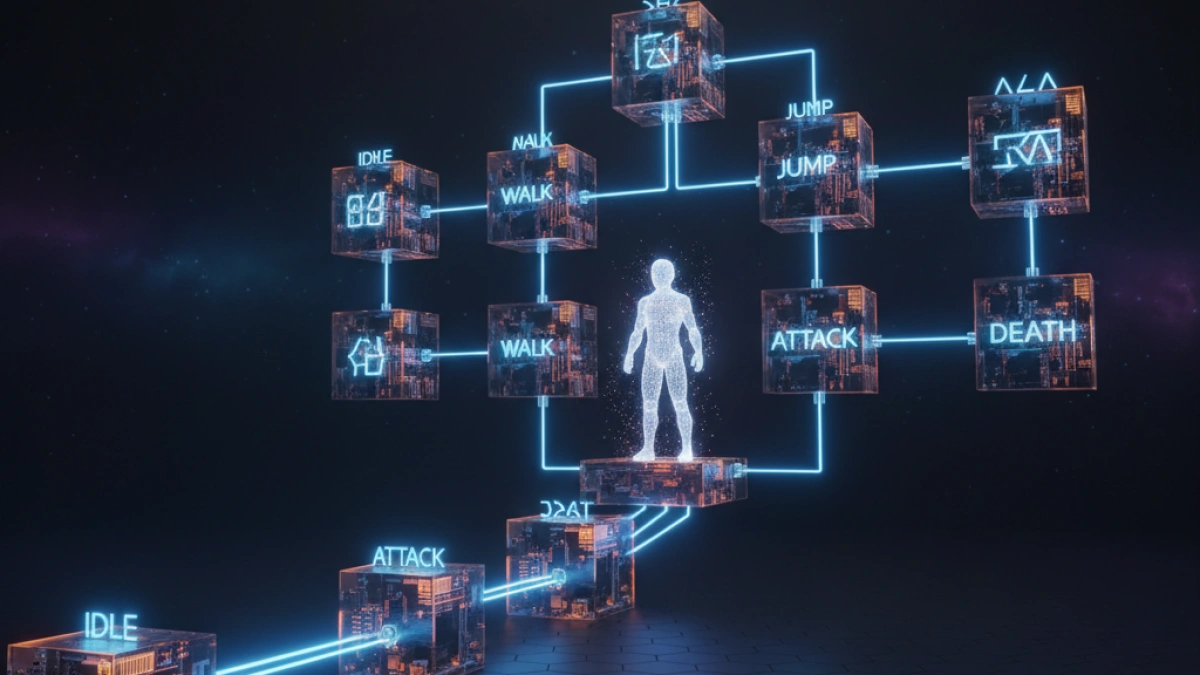What is a State Machine in Video Game Development?


The state machine is a fundamental concept in video game development that allows for the organized and efficient management of the behavior of objects, characters, and systems within the game. In this article, we will explore what a state machine is, how it is implemented in video game development, and what its benefits are.
What is a State Machine?
A state machine is a computational model that can be in one of a finite number of states at any given time. In the context of video games, these states can represent different conditions or modes of an object or character, such as walking, jumping, attacking, or being idle.
Components of a State Machine
- States: Represent the various conditions in which an entity can exist.
- Transitions: The rules that determine when and how to move from one state to another.
- Actions: The activities that take place when entering or exiting a state.
Importance of State Machines in Video Games
State machines are essential for managing the complexity that arises in modern video games. They help maintain organized and modular code, making it easier to understand and maintain. Let’s look at some key benefits.
Facilitation of Control Flow
State machines allow for clear and orderly control of the game flow. For example, a character's animation can smoothly transition from "walking" to "jumping" by clearly defining the transitions and the necessary conditions for them.
Improved Code Maintainability
By encapsulating behavior in different states, state machines help avoid the creation of complicated control structures that can arise when using a rigid approach without a clear separation of responsibilities.
Implementing a State Machine
Basic Structure
A state machine can be implemented in various programming languages. Below is a simple example in pseudocode:
class State:
function enter():
// Logic for entering the state
function exit():
// Logic for exiting the state
class StateMachine:
currentState: State
function changeState(newState: State):
if currentState != null:
currentState.exit()
currentState = newState
currentState.enter()
// Example states
class WalkingState extends State:
function enter():
// Start walking animation
class JumpingState extends State:
function enter():
// Start jumping animationState Transitions
Transitions between states should be well-defined. For example, to transition from "WalkingState" to "JumpingState," a condition might be used such as:
if (jump_button_pressed):
stateMachine.changeState(JumpingState)Example in a Video Game
Imagine a platformer game where the protagonist can walk and jump. By implementing a state machine, the following states could be defined:
- Idle State
- Walking State
- Jumping State
Each of these states has its own animations and behaviors, making it easier to manage the character's actions.
Conclusion
State machines are a powerful tool in video game development, especially in games that feature complex interactions and multiple actions. Their clear and modular structure allows for more efficient development and reduces the likelihood of errors. By understanding and utilizing this pattern, developers can create richer and more dynamic gaming experiences.
By mastering state machines in video game development, you will not only improve the quality of your code but also enrich player experiences with smoother and more natural interactions.



















